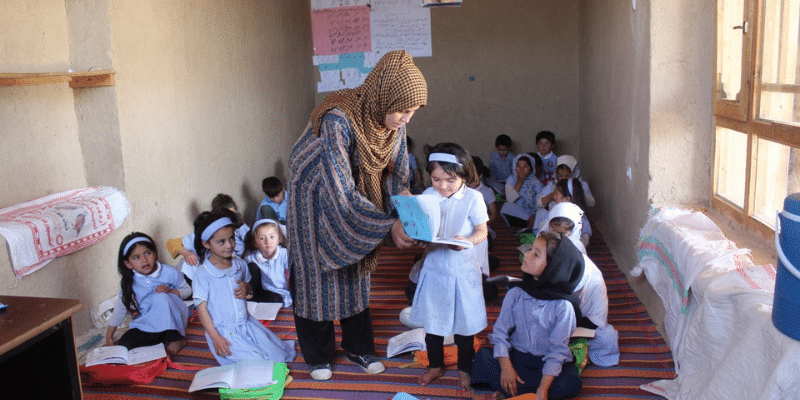By Natalie Meyer
As a college student, education profoundly changed and shaped my life. My classes have taught me to think critically, ask questions, and imagine new possibilities for myself. But more importantly, education has given me a sense of autonomy. It’s empowered me to take ownership of my voice, my decisions, and the life I hope to build. The current state of girls in Afghanistan is unjust and as an educated woman, I care deeply about the human right for every girl to have an educational foundation.
Since the Taliban’s return to power in August 2021, girls in Afghanistan have been banned from attending school past Grade 6. This decision forced more than 1.4 million girls out of school, and the consequences have seeped into every aspect of life (UNESCO, 2024). Today, Afghanistan is the only country in the world that bars girls from secondary education (Malala Fund, 2025).
Central Asia Institute (CAI), where I’m interning this summer, works to advance education and economic opportunity for women and girls. In Afghanistan, this work has become increasingly difficult. Despite the Taliban’s harsh restrictions, CAI continues to support local partners and offer alternative forms to learning and vocational training, equipping women with the skills to earn an income and support their families. We remain committed to ensuring that women and girls continue to have access to knowledge and skills, even under the most restrictive conditions.
The situation has recently been further compounded by the suspension of U.S. foreign aid programs, travel restrictions, and the revocation of temporary protection status for Afghan refugees (NPR, 2025). These cuts and restrictions have and will continue to impact vital education initiatives and the livelihoods of Afghan women everywhere. In some cases, students who have already relocated abroad to further their education at universities now face uncertainty or possible return to a country where their education and safety are no longer guaranteed (BBC, 2025).
Girls’ education is a proven investment in community resilience, economic development, and peacebuilding. According to USAID, investing in education helps prevent extremism by addressing root causes like poverty and lack of opportunity. Educated women lead to healthier families, stronger economies, and more stable societies.
There is a shared responsibility to help sustain the educational progress the U.S. supported in Afghanistan over the past 20 years. Closing the door would be a significant betrayal of our investment in the literacy and wellbeing of millions of Afghan women and girls. Continued support helps uphold that legacy and ensures that years of progress are not lost.
I believe in education not only because of what it’s done for me, but also because I believe in the right of every girl everywhere to feel confident in herself, capable in her future, and free to learn.
*Natalie Meyer is a rising junior at Princeton University where she is studying Anthropology. She is a summer intern at CAI.






